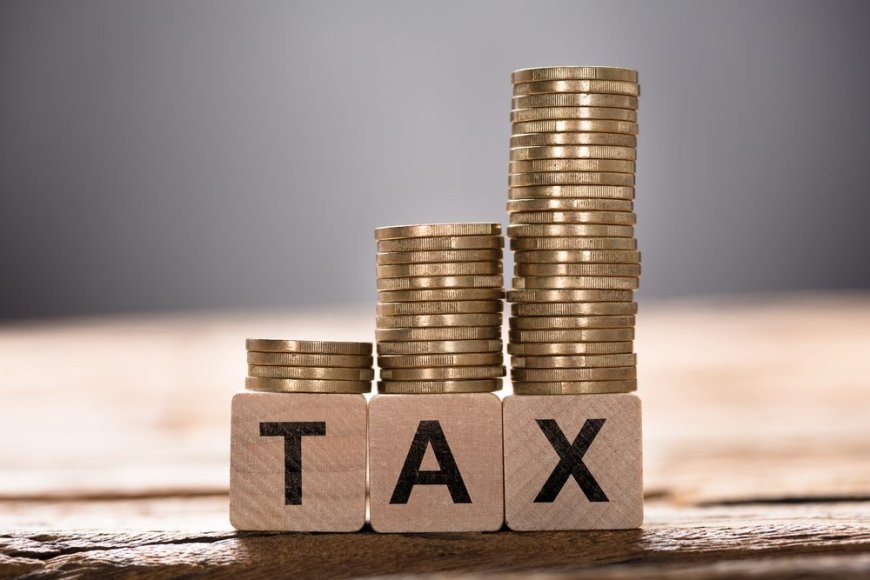Supreme Court Told Double Taxation Not Permitted in Super Tax Case
The Supreme Court of Pakistan was told that double taxation is not legally permissible in the super tax case under Section 4B of the Income Tax Ordinance 2001. Tax experts argue taxpayers have the right to choose under which law they pay.

The Supreme Court of Pakistan was informed on Wednesday that, as a fundamental principle of tax law, double taxation cannot be imposed on taxpayers, and they must retain the right to choose under which of two applicable laws they are obligated to pay.
The case was heard by a five-member larger constitutional bench, headed by Justice Amin-ud-Din Khan, with Justices Jamal Khan Mandokhail, Muhammad Ali Mazhar, Syed Hassan Azhar Rizvi, and Shahid Bilal Hassan also on the bench. The matter involves the imposition of a super tax under Section 4B of the Income Tax Ordinance, 2001, a controversial issue that has raised concern across Pakistan’s business community and corporate sector.
Taxpayers Argue Against Double Taxation
Appearing before the court on behalf of several leading taxpayer companies, Barrister Farogh Naseem strongly argued that the legal framework does not support double taxation. He maintained that while super tax or surcharges may be applied in specific circumstances when income is assessed, the law does not permit the same income to be taxed twice under overlapping provisions.
Naseem explained that the wording of the Income Tax laws of 1922 and 1976 had significant differences compared to the current legislation. He emphasized that the current framework fails to provide clear legal ground for levying an additional super tax under Section 4B in addition to existing tax obligations.
“The law permits income tax or super tax under one provision, but not under both, otherwise it amounts to taxing the same income twice,” Barrister Naseem told the court.
Judicial Bench Raises Probing Questions
During the proceedings, Justice Jamal Khan Mandokhail directly questioned how a super tax could be applied on income that had already been subjected to regular taxation.
In response, Barrister Naseem provided an illustrative example: if an individual opens an account in January 2021 and closes it by December 31, 2021, the income would already be taxed under the standard provisions. Imposing an additional super tax under Section 4C without clear legislative intent would mean double taxation, which is impermissible in law.
He further argued that Section 4C of the Income Tax Ordinance does not explicitly authorize an additional levy beyond the standard tax. Therefore, taxpayers should be allowed to choose whether to pay under Section 4 or Section 4C, whichever is more appropriate and favorable.
Justice Mandokhail, probing the argument further, asked where this principle of choice originated in taxation law. Naseem replied that it was a long-established legal principle: when two similar laws apply, the taxpayer has the right to select the more favorable one.
Legal Principles Compared to Criminal Law
Drawing a parallel, Justice Mandokhail remarked that in criminal law, when two provisions overlap, punishment is usually awarded under the section prescribing the lesser sentence. Barrister Naseem supported this analogy, arguing that a similar principle must be applied in tax law to protect taxpayers from excessive or duplicated burdens.
Case Adjourned – Arguments to Continue
The Supreme Court bench adjourned the hearing until Thursday (today), where Barrister Farogh Naseem will continue his arguments before the larger bench. The case is expected to delve deeper into the interpretation of Sections 4B and 4C, which will be crucial in determining whether the government can continue to impose super tax as an additional levy.
Business Community Watches Closely
The ongoing case has drawn widespread attention from the business community, investors, and financial experts. Many argue that the imposition of super tax has discouraged corporate growth, raised compliance concerns, and created uncertainty in Pakistan’s investment climate.
If the Supreme Court rules in favor of the taxpayers, it could set a historic precedent limiting the government’s ability to impose overlapping taxes in the future. On the other hand, if the decision favors the Federal Board of Revenue (FBR), it would provide legal backing for the continuation of super tax collections under Section 4B.
Wider Implications for Pakistan’s Tax System
Tax experts point out that the outcome of this case will likely influence future tax reforms, particularly in the context of Pakistan’s commitments to the International Monetary Fund (IMF) for revenue generation. With the country struggling under fiscal pressure, taxation of high-earning corporations has been a key policy tool for the government.
The Supreme Court’s final decision in the super tax case will carry far-reaching consequences not just for the corporate sector, but for Pakistan’s broader tax policy and its future ability to balance revenue generation with fair treatment of taxpayers.

 Ateeq Ur Rehman
Ateeq Ur Rehman